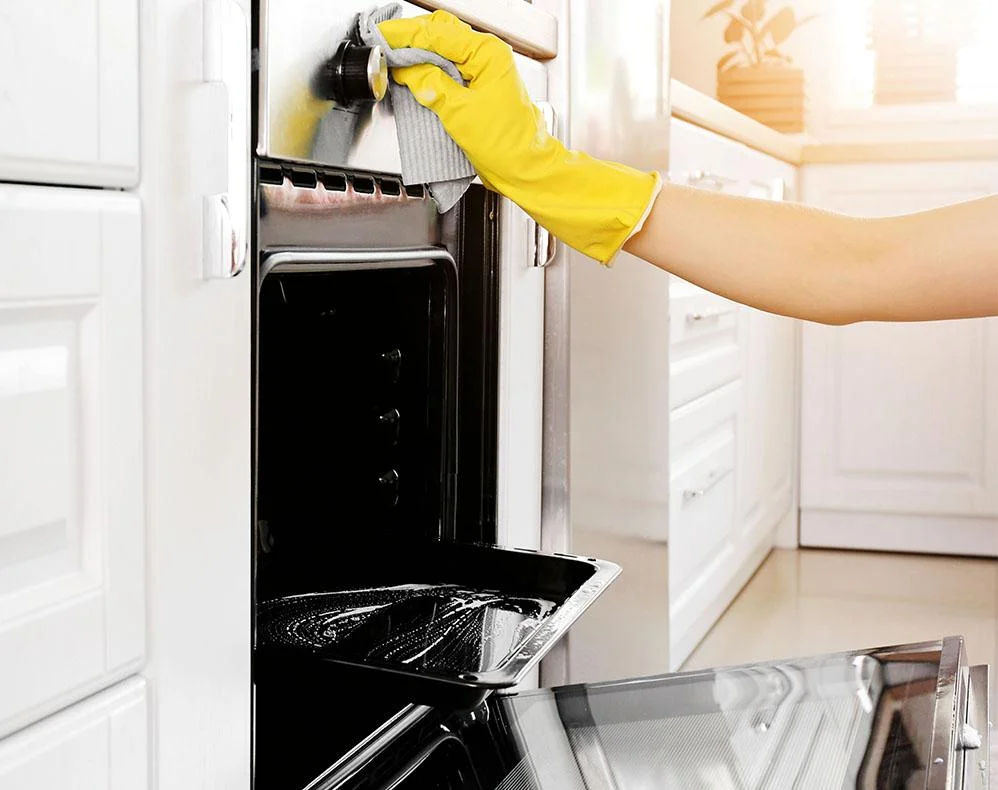Best practices for oven cleaning? Oven Cleaning Service is an essential task to maintain its performance and prolong its lifespan. Regular cleaning not only ensures a clean and hygienic cooking environment but also prevents the buildup of grease, food residue, and odors. In this article, we will discuss the best practices for oven cleaning that will help you keep your oven sparkling clean and maintain its efficiency.
Understanding the Importance of Oven Cleaning
A clean oven not only enhances the aesthetic appeal of your kitchen but also improves the taste and quality of the food you cook. Over time, ovens accumulate grease, food particles, and carbonized residue, which can affect the flavor of your dishes and even lead to smoke and unpleasant odors. Regular cleaning prevents the buildup of these substances and ensures efficient heat distribution.
Preparing for Oven Cleaning
Before diving into the cleaning process, it’s important to prepare the oven and gather the necessary supplies. Start by removing any racks, trays, or accessories from the oven. These can be cleaned separately later. Make sure the oven is turned off and cooled down completely before proceeding.
Choosing the Right Cleaning Method
There are several methods for cleaning ovens, each with its own advantages. Some popular options include using commercial oven cleaners, natural cleaners like baking soda and vinegar, or a combination of both. Consider factors such as the severity of the dirt, your personal preference, and any specific instructions from the oven manufacturer.
Cleaning the Interior of the Oven
To clean the interior of the oven, begin by scraping off loose debris with a spatula or a plastic scraper. Next, apply the chosen cleaning solution to the interior surfaces, focusing on areas with stubborn stains and grease. Allow the cleaner to sit for the recommended time, usually around 15-30 minutes. Finally, wipe away the cleaner and residue using a damp cloth or sponge.
Cleaning the Oven Racks and Accessories
To clean oven racks and accessories, start by placing them in a sink or bathtub filled with warm water and dish soap. Allow them to soak for a few minutes to loosen any grime. Next, scrub the racks with a non-abrasive sponge or brush to remove the remaining dirt. Rinse them thoroughly and dry them before placing them back in the oven.
Tackling Stubborn Stains and Grease
For stubborn stains and grease, consider using a paste made of baking soda and water. Apply the paste to the affected areas and let it sit for a few hours or overnight. The baking soda will help loosen the stains, making them easier to remove. Afterward, scrub the area with a sponge or cloth and rinse with water.
Cleaning the Oven Door
The oven door often accumulates grease and grime, affecting its transparency and overall appearance. To clean the oven door, use a mixture of equal parts vinegar and water. Apply the solution to a cloth or sponge and wipe the door, paying attention to the edges and handle. For stubborn stains, a non-abrasive scrub brush can be used.
Maintaining the Oven’s Exterior
While cleaning the interior is crucial, maintaining the oven’s exterior is equally important for a polished look. Wipe the exterior surfaces with a damp cloth or sponge and mild detergent. Avoid using abrasive cleaners or harsh chemicals that can damage the oven’s finish. Dry the surface thoroughly to prevent streaks or water spots.
Safety Precautions for Oven Cleaning
When cleaning your oven, it’s essential to prioritize safety. Always follow the manufacturer’s instructions and wear protective gloves to prevent skin irritation from cleaning solutions. Ensure the area is well-ventilated to avoid inhaling fumes. If using commercial oven cleaners, read the labels carefully and use them in a well-lit space away from open flames.
Tips for Regular Oven Maintenance
To keep your oven in top condition, consider the following maintenance tips:
- Wipe up spills and splatters as soon as they occur.
- Place a baking sheet or aluminum foil on the lower rack to catch any drips.
- Use oven-safe containers or dishes to prevent spills.
- Avoid using abrasive cleaning tools or harsh chemicals on the oven’s interior.
- Schedule regular deep cleaning sessions to remove stubborn stains and odors.
Conclusion
Cleaning your oven regularly is essential for maintaining its performance, ensuring hygienic cooking conditions, and enhancing the longevity of the appliance. By following the best practices outlined in this article, you can keep your oven clean, efficient, and ready to create delicious meals for years to come.
